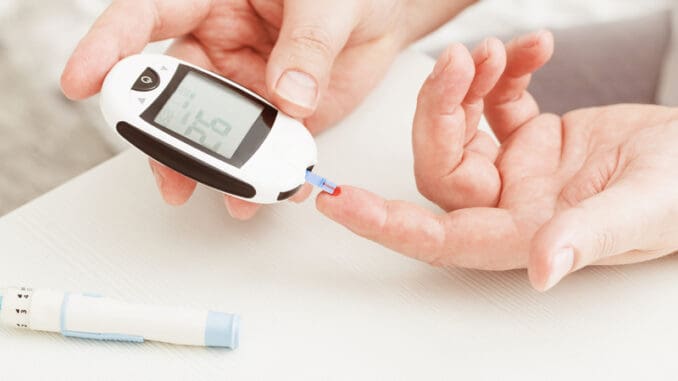
Health experts say it’s bad for you… but what if it’s not?
Unsubscribe | Report as spam | Change email preferences
—-Important Message—-
This supposedly “bad” food is 1 of the healthiest foods men can possibly eat

Every so-called “diet expert” in the world will tell you this 1 food is bad for you…
…that it makes you fat and unhealthy…
Like it’s the gateway drug to every bad disease under the sun…
But what if I told you this was all a big giant lie?
What if this 1 so-called “bad” food is actually one of the healthiest foods you can possibly eat?
What if this 1 food turned out to be the key to remaining young and healthy naturally…
…with a hot, high metabolism, a high drive, and teenage-like stamina…
Would you eat it? Here’s the 1 food…
———-
Should men eat more or less cheese?
Dairy is one of the healthiest food categories there are.
And good quality cheese is perhaps the best type of dairy.
Cheese contains top tier micronutrients like calcium, vitamin D, vitamin K2 alongside healthy fats and high quality protein.
All of this means that cheese is good for your cardiovascular and metabolic health.
A recent study set out to see the effect of cheese on cardio metabolic health outcomes using Mendelian randomisation methods.
This is considered one of the top methodologies available today which takes into account genetics as well as environmental factors and to find causal effects.

The human research was carried out at the Chinese Academy of Medical Sciences & Peking Union Medical College in Beijing, China. The paper was published in Nutrients.
The researchers became interested in this topic because of many, many studies which seem to indicate great health benefits from cheese consumption.
They wanted to find out whether these benefits were actually caused by eating cheese.
“A growing number of studies revealed an inverse association between cheese intake and cardiovascular diseases, yet the causal relationship is unclear.”
The research involved creating a Mendelian randomisation study…
Something which uses study data and genetic factors to get to the bottom of possible causal effects.
“A Mendelian randomization analysis based on publicly available genome-wide association studies was employed to infer the causal relationship.”
They found that cheese consumption may reduce the risk of type II diabetes by as much as two-thirds.
“Cheese intake per standard deviation increase causally reduced the risk of type 2 diabetes (odds ratio, 0.46, 0.34.)”
(With odds ratio and number less than 1.0 means a reduction – for example 0.50 is a 50% reduction.)
They found a similar massive causal reduction in heart failure from increased cheese consumption.
“Cheese intake per standard deviation increase causally reduced the risk of heart failure (odds ratio, 0.62).”
The data showed a massive decrease in the risk of heart disease in people who consume significant amounts of cheese.
“Cheese intake per standard deviation increase causally reduced the risk of coronary heart disease (odds ratio, 0.65).”
Blood pressure and stroke can also be significantly reduced by making cheese a major part of the diet.
“Cheese intake per standard deviation increase causally reduced the risk of hypertension (odds ratio, 0.67) and ischemic stroke (odds ratio, 0.76).”
The researchers believe that much of the effect may be related to decreased BMI in people who consumed more cheese.
The fats contained in cheese are much better for your metabolism than other commonly consumed fats…
And the high levels of calcium help to keep the metabolic rate up – meaning you will be leaner and carry less fat.
“The better prognosis associated with cheese intake may be explained by lower body mass index.”
Cheese consumption had a massive role in reducing body mass index and waist circumference.
Waist circumference is one of the best simple measurements which can tell us about future health outcomes.
Cheese consumption was also associated with significantly lower triglycerides and fasting blood glucose.
This research shows that cheese consumption can reduce many of the factors which cause some of the most common health problems.
“Our analysis found causally inverse associations between cheese intake and type 2 diabetes, heart failure, heart disease, hypertension, and ischemic stroke.”
This type of research, Mendelian randomisation, is widely believed to give quite accurate results in relation to causality…
Meaning cheese likely reduces the risk of these health problems – rather than simply being associated with a lower risk of these health problems.
I know from my years of reading scientific research that the calcium, vitamin D, vitamin K2, healthy saturated fats, and high quality protein contained in cheese are the likely mechanisms for these many health benefits.
—-Important Message From James Walker—-
30 second ritual reverses high blood sugar and torches fat

In the next 60 seconds, you’re going to discover how thousands of men are balancing their blood sugar levels…
…melting away excess weight WITHOUT doing it “the tough way”…
…reducing hunger cravings…
…and enjoying deeper and more restful sleep…
All thanks to the recent breakthrough discovery of a shockingly effective 30 second “bedtime hack”…
So simple, so safe — and you can do it in your bedroom before you go to bed…
———-

